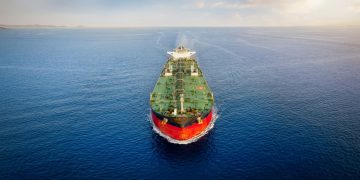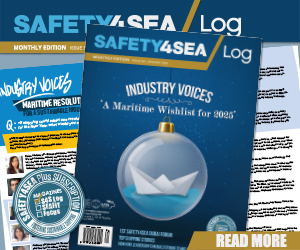Οn the occasion of the World Mental Health Day, celebrated every year on 10 October, World Foundation of Mental Health, highlights this year that ‘Mental health is a universal human right’.
As human beings, our mental health and the health of those we care about would be a matter of daily concern. Regardless of our age, gender, socio-economic or ethnic background, we consider our health to be our most basic and essential asset.
According to United Nations High Commissioner for Human Rights (OHCHR), more than 1 in 10 people are living with a mental health condition at any one time. Yet, treatment coverage is unacceptably poor, and especially in low- and middle-income countries. Poor mental health is a predisposing factor for poor physical health.
However, having a mental health condition should never be a reason for denying human rights or for keeping people out of discussions about their own health. Yet people with mental health issues continue to be subjected to a variety of human rights violations on a global scale.
Alarming statistics around mental health
- People with mental health conditions experience widespread human rights violations, discrimination and stigma.
- More than 80% of people experiencing mental health conditions, including individuals experiencing neurological and substance use disorders, are without any form of quality, affordable mental health care.
- 1 in 5 years lived with disability globally, leading to more than US$ 1 trillion per year in economic losses.
- It is well known that people living with mental health conditions are more likely to face other physical health problems (e.g. HIV, TB, noncommunicable diseases), causing early mortality of 10-20 years.
Advocating for Seafarers’ mental health rights
In such a challenging environment such as ships are where seafarers are involved in safety-critical operations, maintaining their mental wellbeing is critical to safety. The COVID-19 pandemic added physical and mental exhaustion while anxiety and mental health issues appear an alarming increase afterwards.
According to “Seafarers Happiness Index 2023Q2”, data showed a significant drop in overall happiness to 6.77/10, down from 7.1/10 in Quarter 1. Happiness levels fell across all categories, and there were yet more growing problems, perhaps exacerbated by the fact that seafarers are struggling to see improvements post pandemic.
For example, one issue that impact seafarers’ mental health, is working for “20+ hours per day.” This practice goes against the provisions of the Maritime Labour Convention (MLC), which is meant to protect seafarers’ rights and ensure reasonable working hours. Seafarers expressed frustration that senior officers do not seem to care about these overloaded work issues, and there is a perception that work, and rest hours are merely on paper, not reflecting the reality on board. This apparent disregard for regulations raises concerns about the wellbeing and safety of seafarers.
Furthermore, during the 2023 Crew Welfare Week , Andrew Stephens, Executive Director, Sustainable Shipping Initiative, highlighted that lack of transparency and poor regulatory enforcement at sea enables poor practices such as forced labour, withholding wages, recruitment fees among others, respecting workforce labour and human rights for those at sea, affording the same as for those onshore. Ιn this way, there is huge impact on the mental health of seafarers.
The International Transport Workers’ Federation (ITF) highlights that overlooking seafarer’s rights is not only illegal but also the cause for major safety threats. According to ITF:
- There is a mental health crisis at sea and concerning rates of depression (25 %), anxiety (17%) and suicidal ideation (20%) among seafarers.
- Contributing factors have been shown to be work environmental conditions, including a non-caring work culture; violence at work; and a lack of training, with the occurrence of notable high-risk periods during an extension of a voyage.
- Seafarers are under increasing pressure to do additional tasks withouth adequate rest time or training.
The way forward
A report by Lloyd’s Register Foundation (LRF) demonstrates that maintaining psychological wellbeing plays an important role in maintaining safety standards. The report findings suggest that to improve crew safety, psychological wellbeing should be treated as equally important as physiological health.
Positive change continues from lessons learned during the pandemic. The COVID-19 pandemic highlighted the need for greater rights to protect seafarers, particularly in times of crisis. To date, 63 IMO member states have ratified an ILO resolution to designate seafarers as key workers. It is hoped this will prevent further humanitarian crises occurring during future crises
The ILO Special Tripartite Committee approved eight significant amendments to the Maritime Labour Convention (MLC 2006) in May 2022. Changes include stricter legal requirements for seafarers to be able to access medical care ashore and ensuring that PPE policies for health and safety are available in sizes that fit all seafarers, including women.
Important changes to food and catering regulations include enhanced access to free, high-quality drinking water and the provision of balanced, nutritious food. Significantly, changes to the MLC make it a mandatory right for seafarers to social connectivity, including internet access onboard.
As shipping moves forward on its decarbonisation journey, it is vital that industry continue to lobby governments and work with the IMO and other UN agencies to ensure seafarers rights are upheld and protect their overall wellbeing.
Remember that doing your part for World Mental Health Day 2023 doesn’t have to involve making a huge gesture. Like many things in life, it’s sometimes the smaller things that are important!
































































While it is true that there are interventions being done by some companies now with regards to their crewmembers mental health, still it has to be admitted that there is a long way to go. The above mention items as part of crew well-being on board such as provision of internet access, good food including provision of bottled water free of charged to the crew, fitness items such as weights, dumb bells, thread mill (often times) are just for show up during MLC inspections but no longer working and not being check by inspectors are only some of the things mention by the crew as what is happening n board ships now. There is a strong belief among many seafarers that MLC 2006 is a just on paper and at most times not being followed by ship operators and only make ways to avoid penalties or even detention. The MLC 2006 for it to be truly successful and implemented by ALL ship operators
regardless of nationality must have a strong TEETH once ship operators are found to be in violation of it’s provisions notably those dealing with crew welfare , detention and penalties are enforce truly. The mental health of seafarers are sadly only being notice upon the onset of the COVID-19 pandemic and on the last four decades it is simply neglected and only now that it’s slowly making news that is serious on board ships and must be given due attention by ship owners, maritime authorities, government agencies elsewhere and seafarers themselves.